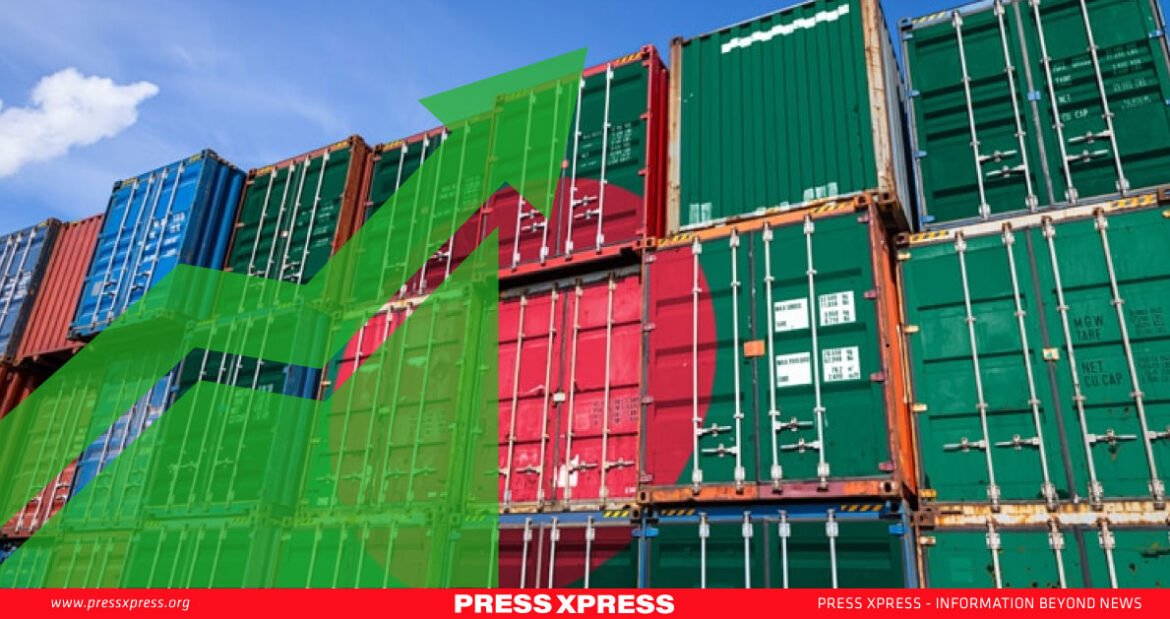Experts convened at the Institute of Chartered Accountants of Bangladesh (ICAB) underscored the urgent need for fiscal reforms and economic stability during a seminar on the “Salient Features of Finance Act 2024: Investment Perspective”. The seminar, highlighted in a press release, emphasized strategies to bolster revenue collection through tax net expansion, thereby reducing government reliance on market borrowing and mitigating vulnerabilities to external economic conditions and currency depreciation.
You Can Also Read: BANGLADESH’S PATH TO EXPORT GROWTH IN CHINA: AN INSIGHTS
The experts highlighted the importance of fiscal discipline amidst increased money supply and consumer demand. They stressed the necessity of containing consumption-driven demand to maintain stable inflation levels.
The Impact of New Withholding Rules and Asset Reporting
A key proposal discussed was the introduction of a new withholding entity aimed at widening the tax net and reducing administrative burdens for outward remittances. Additionally, the requirement for government employees and individuals with assets exceeding Tk. 5.0 million to submit assets and liabilities statements was deemed essential for enhancing transparency and accountability within the public sector.
The seminar also addressed regulatory measures such as the mandatory submission of PSR (Personal Status Report) for obtaining and renewing licenses of various establishments within city corporation areas. This initiative is expected to expand the tax net and streamline regulatory compliance.
One significant point raised was the pressure of inflation. According to the seminar, increased money supply and demand could push prices up, necessitating stringent monitoring of consumption demand to maintain stable inflation. The potential rise in interest rates due to government borrowing was also discussed, highlighting the need for prudent management to avoid deterring private investment.
The Finance Act 2024 mandates that all receipts and income transactions above Tk. 5 lakh and annual transactions over Tk. 36 lakh must be conducted through bank transfers. This provision is expected to positively impact the economy by enhancing transparency and accountability. The Act also exempts TDS on payments to non-residents for specific cases, such as payments to foreign authorities, subscription fees to professional bodies, liaison office expenses, international product development and marketing expenses, tuition fees, and security deposits. This exemption is anticipated to ease the process of making outward remittances and reduce the tax burden.

TDS Exemptions for Non-Residents:
- Payments to foreign authorities
- Subscription fees to professional bodies
- Liaison office expenses
- International product development and marketing expenses
- Tuition fees
- Security deposits
Expanding the Tax Net: Key Reforms Under the Finance Act 2024
The Act broadens the tax net by introducing a new withholding entity. This measure also provides relief for individual taxpayers other than government employees.
Additionally, mandatory PSR submission for obtaining and renewing licenses for hotels, restaurants, motels, hospitals, clinics, and diagnostic centers within the City Corporation Area is expected to expand the tax net further.
In the broader context, speakers emphasized the need for Bangladesh to enhance export earnings, remittances, and foreign direct investment (FDI) to stabilize foreign exchange reserves. Expanding the tax net to increase revenue would reduce the government’s reliance on market borrowing, thereby mitigating vulnerability to external conditions and potential currency depreciation.
Under the new finance law, TDS on payments to non-residents will not apply in specific cases such as payments to foreign authorities, subscription fees for professional bodies, liaison office fees, international product development and marketing expenses, tuition fees, and any form of security deposit. This change is anticipated to streamline outbound remittances and reduce the tax burden.
Mandatory submission of PSR for obtaining and renewing licenses for hotels, restaurants, motels, hospitals, clinics, and diagnostic centers within the city corporation area will further expand the tax net.
Steps Toward Macroeconomic Stabilization
The slow progress in achieving macroeconomic stabilization in Bangladesh can be attributed to the inadequate implementation of necessary reforms. Initially, policy responses focused on managing the balance of payments through import controls and utilization of foreign exchange reserves. Domestic inflation was targeted with budgetary subsidies on essential commodities such as oil, gas, electricity, and fertilizers. Additionally, efforts were made to sustain GDP growth and stimulate investments by maintaining strict control over interest rates, increasing fiscal deficits, and relying heavily on Bangladesh Bank financing.
However, these policies did not achieve their intended stabilizing effects; instead, they exacerbated existing imbalances. Unsustainable drawdowns on foreign exchange reserves strained the exchange rate while declining foreign capital inflows heightened the pressure. The inflation rate surged, approaching nearly 10 percent, fueled partly by substantial budgetary subsidies that diverted resources from essential social services and widened fiscal deficits. Importantly, efforts to stabilize the exchange rate through further import restrictions led to a significant 27 percent decline in imports from the FY2022 level, adversely impacting GDP growth, investment, and exports.
What caused these setbacks? Macroeconomic imbalances stemmed primarily from three sources: inflationary pressures, balance of payments pressures, and fiscal pressures. Addressing these challenges necessitates deploying a diverse set of policy tools tailored to each area: monetary policy to alleviate inflationary pressures, exchange rate policies to ease balance of payments pressures, and fiscal measures to alleviate budgetary pressures. Coordinating these instruments holistically can enhance their effectiveness and mitigate the unintended consequences of individual policy actions.
Policy Responses:
- Import controls and use of foreign exchange reserves.
- Budgetary subsidies on oil, gas, electricity, and fertilizers.
- Control over interest rates.
- Increased fiscal deficits.
- Reliance on Bangladesh Bank financing.
Moving forward, a concerted effort to implement these coordinated policy reforms is crucial for restoring macroeconomic stability in Bangladesh. By recalibrating policies to address these fundamental imbalances, the government can foster sustainable economic growth, enhance investor confidence, and ensure long-term prosperity for its citizens. This strategic approach is essential to navigate the complexities of global economic dynamics and secure Bangladesh’s position in the international economic landscape.
Insights into Bangladesh’s Economic Resilience
Regarding the management of the balance of payments, excessive reliance on import controls poses challenges inconsistent with accelerating GDP growth. While selective import controls can serve as short-term emergency measures, their prolonged use risks severe supply disruptions dampens domestic and foreign private investments, undermines export competitiveness, and constrains overall GDP expansion. Sustainable management of balance of payments pressures necessitates a dual approach: bolstering export capacities on the supply side and employing demand-side measures to curb excessive imports.
Central to fostering export growth is the incentivization policy framework. Investors commit to producing and exporting only when the profitability derived from exports surpasses that from domestic market activities. The exchange rate and trade protection mechanisms are pivotal determinants of export profitability. An overvalued real exchange rate diminishes export competitiveness while favoring domestic market production. Likewise, elevated trade protections skew incentives in favor of domestic production, undercutting export-oriented sectors.
In terms of exchange rate management, a persistent challenge has been the prolonged overvaluation of the exchange rate. This overvaluation, reflected in a staggering 57 percent appreciation of the real effective exchange rate (REER) from FY2011 to FY2022, has had detrimental effects. Failure to timely correct this overvaluation left Bangladesh vulnerable to significant currency depreciation between April 2022 and September 2023. Even with subsequent adjustments, the taka remains substantially overvalued by 40 percent in real terms compared to 2011 levels.


